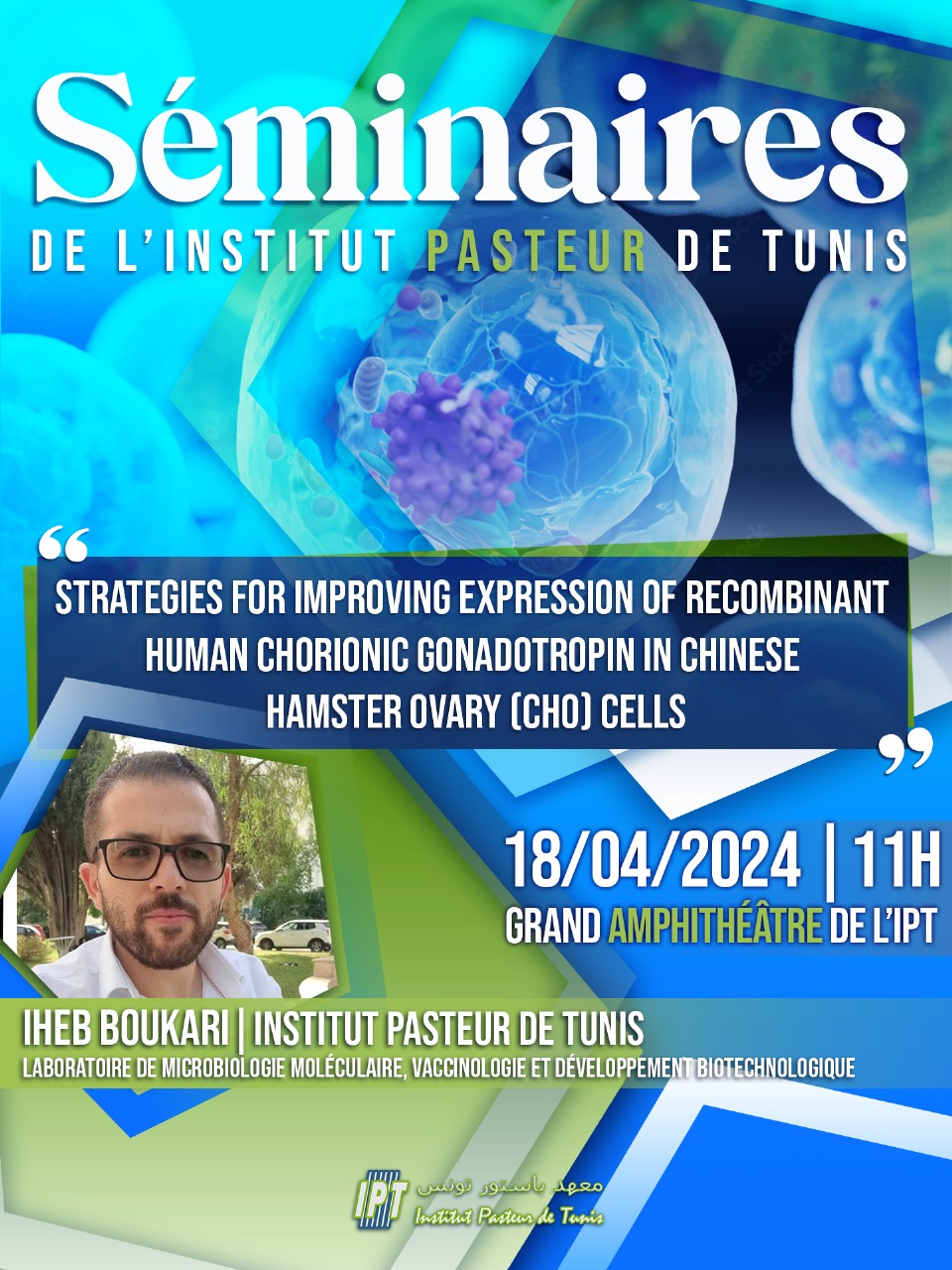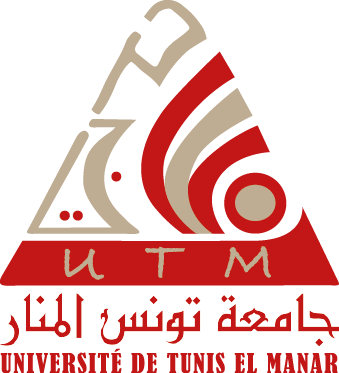Il aura lieu le jeudi 18 avril 2024 à 11h00 dans le grand amphithéâtre de l'IPT.
Résumé du séminaire:

Optimizations of gene expression cassette combined with the selection of an appropriate signal peptide are important factors that must be considered to enhance heterologous protein expression in Chinese Hamster Ovary (CHO) cells. For this purpose we have investigated the effectiveness of different signal peptides on the production of recombinant human chorionic gonadotropin (r-hCG) in CHO-K1 cells. Four optimized expression constructs containing four promising signal peptides were stably transfected into CHO-K1 cells. The generated CHO-K1 stable pool was then evaluated for r-hCG protein production. Interestingly, human serum albumin and human interleukin-2 signal peptides exhibited relatively greater extracellular secretion of the r-hCG with an average yield of (16.59 ± 0.02 µg/ml) and (14.80 ± 0.13 µg/ml) respectively compared to the native and murine IgGκ light chain signal peptides. The stably transfected CHO pool was further used as the cell substrate to develop an optimized upstream process followed by a downstream phase of the r-hCG. The combined data indicate that the choice of signal peptide can be imperative to ensure an optimal secretion of a recombinant protein in CHO cells and the use of stable pool technology was a viable approach for the production of recombinant hCG at a research scale with acceptable bioprocess performances, as well as consistent product quality.
Biographie de Mr. Iheb Boukari :
Iheb Boukari, a Ph.D candidate in the laboratory of Molecular Microbiology, Vaccinology and Biotechnological Development, Institut Pasteur de Tunis, specializes in Molecular Biotechnology with a focus on Mammalian Protein Expression. With extensive hands-on experience, he possesses in-depth knowledge and practical skills in cloning, recombinant protein expression, and purification, particularly in Chinese Hamster Ovary (CHO) cells. His research interests lie in optimizing recombinant glycoprotein expression within the CHO expression system and expanding the applications of proteins in both industry and research domains. During his doctoral studies, he collaborated with Les Laboratoires Medis (Tunisia) and the Department of Biotechnology at the Graduate School of Engineering, Osaka University, Japan. This collaboration has enriched his expertise in enhancing bioprocess efficiency, with a specific emphasis on developing novel tools and technologies for therapeutic protein production utilizing CHO stable pools and clones.
Soyez nombreux !




